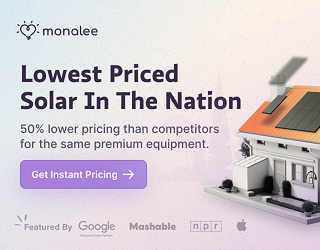The tweet above shows just how silly the notion of banning direct sales of EVs is while pretending to support President Biden’s goals. Tesla leads the auto industry in EV sales globally, yet is banned from selling directly to its customers in much of its own home country. How messed up is that? Outdated laws that favor the dealerships are put in place by politicians who bow down to corruption while sacrificing their own policies and agendas on the alters of fundraiser promises.
Connecticut Governor Ned Lamont tweeted that he loved the president’s goals, but Connecticut doesn’t allow Tesla, Rivian, and other manufacturers to sell directly to their customers. Instead, the state allows the dealerships to reign supreme. This is senseless and hurts consumers, and it certainly also hurts the country’s EV sales goals.
Why The Dealership Model Is Senseless in 2021
I’ve written about this extensively, and so have several other authors here at CleanTechnica. However, the problem hasn’t gone away, so I’ll recap. The key reasons why the dealer model doesn’t work are because it actually harms consumers. In some cases, consumers may be sold a faulty vehicle that they are told by the dealership is safe. This is illegal, but they still do it. Why? Because they can. Let me tell you a story.
When I was married, my ex bought a car from a dealership. It was one of those scummy used car lots where the dealer pitched $400/month as a good deal for someone with low credit. He took that deal, and one day, we were doing something and had just exited a parking lot when all four tires came off. The car had to be towed and we had to use the buses to go home. It was later discovered that the dealership had sold him a faulty car — I don’t know the specifics other than that the car was previously in an accident.
If you do a Google search on “dealership scams,” the results number into the billions. Headlines show that we have a huge issue, yet states are allowing these scams to continue. These scams hurt consumers, but up to the option of buying directly from the automaker, consumers have no choice but to get scammed or at least worry about getting scammed if they want a car.
Ironically, one of the top arguments used for why we supposedly need 3rd party dealerships is that they “protect consumers.” No joke — this is one of their most common arguments in state legal fights.
How Dealerships In Connecticut Stopped The EV Freedom Bill From Becoming A Law
Earlier this year, the EV Freedom Bill, SB 127, proposed that manufacturers be able to sell directly to their customers. Had this law been passed, Tesla, Rivian, Lucid, Bollinger, and others would have been able to sell directly to customers. Dealerships fought this tooth and nail — and won.
Many states have these sorts of laws — including my own state. EV buyers have to travel out of state to pick up their cars if they buy them from an automaker like Tesla. How does President Biden expect to sell EVs if state politicians who double as lackeys for the campaign donors who own them refuse to allow consumers to buy EVs?
“Consumer Protection” Is A Myth
A recent Ford Mustang Mach-E buyer went through hell at a Ford dealership. The dealers didn’t know anything about the Mach-E, tried to scam him 9 ways to Sunday, and gave him really crappy customer service. He was even told by a salesperson that they had no interest in learning about the Mach-E. Not everyone’s buying experience will be that bad, but I’ve heard horror stories from friends and family members about dealerships, as well as repair scams. Several female friends have advised taking a guy with you when car shopping because dealers are likely to con a man less than a woman.
Many dealerships market themselves as a place that provides consumer protection. This is truly a myth. In fact, it’s gaslighting. I’ve written about this here, but I’ll quickly recap. The National Consumer Law Center has produced several reports and co-litigated class-action lawsuits centered around dealer scams such as interest rate markups, racism against people of color who are buying cars, and more. Some of the data found in those reports show that dealers are twice as likely to add a markup to loans to African-Americans than loans taken out by Caucasian borrowers. And when both are marked up, African-Americans pay much higher. Another study said that interest rates at New York dealerships were 311% higher for Black customers.
Conclusion
